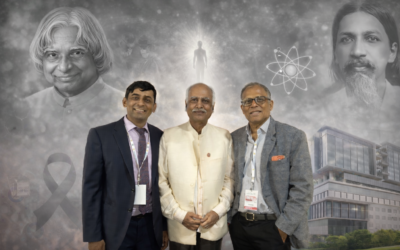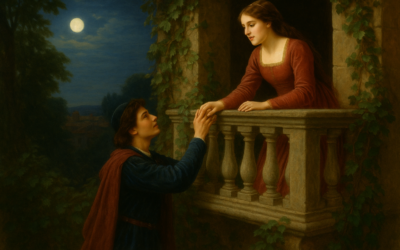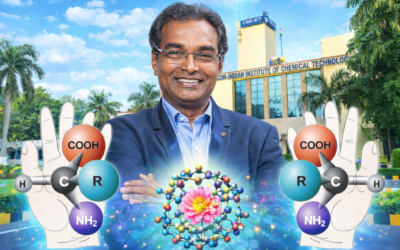The Darkness Within

I learned about Joseph Conrad in the context of Nobel Laureate author Sir V.S. Naipaul, who is said to have written in his style. As I loved reading Sir Naipaul’s novels and tried vainly to make him my role model as a writer, I was naturally intrigued by how Conrad would have written. Recently, I was reading How the World Really Works by Czech-Canadian scientist Vaclav Smil. He mentions Joseph Conrad as the first to capture the dynamics of globalisation and how it affects people.
The protagonists of his three greatest novels find themselves far from their homes thanks to the era’s mass trade and travel (Nostromo in South America, Jim in Asia, Marlow in Africa), and their lives and misfortunes were linked to steamships): Nostromo, in the eponymous novella, is known as Capataz de Cargadores (Head Longshoreman); Jim’s life took a tragic turn while he is helping transport Muslim pilgrims from Asia to Mecca in Lord Jim; and Marlow’s transformation could not have taken place without Western goods being brought deep into the Congo basin in Heart of Darkness. (p. 113)
Joseph Conrad (1857-1924) was born in Berdychiv in Poland under the Russian Empire, now in Ukraine. In 1795, Poland was divided among Prussia, Austria, and Russia to the immense suffering of the Poles people. Conrad’s father was fiercely patriotic and not in sync with his way of life, sixteen-year-old Conrad left home for France to work on French merchant ships for livelihood. He could not speak English fluently until he joined the British Merchant Marine in 1878. Political turmoil continued in Poland, and Conrad became a refugee in England.
The Heart of Darkness was published in 1899. In this semi-autobiographical novel, a 32-year-old sailor, Charles Marlow, tells his listeners the story of his assignment as the captain of a river steamboat in Congo, Africa. His employer is a private colony of Belgium’s King Leopold II, whose employees were involved in illegal ivory trade by poaching elephants in Congo. In a flashback, Marlow makes his way to Africa to reach Mr. Kurtz, in charge of a crucial trading post, through a long journey that involves travelling 30 miles upstream by boat, then a 200-mile trek, and finally, eight miles again sailing on a narrow stream of water.
Though discussed throughout the novel, Mr. Kurtz appears only in the third and concluding part. He is a crucial company employee who has lately turned rogue, assumed a god-like stature among the local tribals, and must be sent back to Brussels. Mr. Kurtz, however, is very ill; he dies on the way back and is buried ingloriously. The novel is raised to great heights through the short-lived friendship of Marlow and the dying Kurtz. Marlow takes the papers, and photograph of a lady Kurtz gives him to carry home. In impeccable faith, Jim does not share papers with the company. The novel ends with Marlow meeting the lady in Brussels.
I loved this novel on three accounts. First, the power of the writer and his words – how a Polish boy, struggling through political instability, escaped to work as a sailor in his teen years and then became a great English writer (not his mother tongue), portraying what he lived through in a manner that survived 200 years and could move my heart when I read it. Second, the accurate portrayal of the gross injustice done to indigenous people (whom we call tribals in India) by the European people looting natural resources, using guns that they possess but which local people do not. Third, for bringing out the fact that humans are no better than beasts, and their demons can play havoc if they let loose their force on the society around them.
Education is fundamental. There is no way out but to learn to read and write, understand life, and express oneself better. I am not even equating education with degrees here. I have seen many great academicians who could improve at expressing and communicating their ideas, and many great writers, poets, and theater artists who have yet to receive formal education. The current trend of children talking in syntax, not even using words, let alone composing sentences, is disturbing. If a child in high school cannot speak for five minutes on a topic of his or her choice or write a 1000-word essay about oneself, there is something seriously wrong with the way we are raising our children.
The COVID-19 pandemic brought out the gross injustice done to the indigenous people who come to cities for work. In India, services in the new affluent towns are run mainly by young people from villages and faraway states, including the northeastern ones. Many young people are involved in the delivery of online goods, including food. I see no organised system – hostels, hospitals, part-time schools – taking care of them. After their working hours, these youngsters need a healthy social life with people of a similar background and way of life. And there is no reason that it can’t be done, except for the callousness of the people holding power and money in the society where these people serve.
Finally, the innate wickedness of people, which we all carry within, is waiting for an opportunity to erupt. It is here that Heart of Darkness excels. Africa is seen as a dark continent with thick forests, which are not surveyed, and no maps, roads, or railway networks. The people are dark-skinned. But the novel brings out the savagery of the white-skinned people – the European people – who, by having a gun in their hand, consider themselves entitled to all the wealth on this earth and masters of the people who have darker skin, a shorter height, and a flatter nose then theirs. Conrad writes his character Marlow saying about Mr. Kurtz:
You should have heard him say, ‘My ivory.’ Oh, yes. I heard him. ‘My Intended, my ivory, my station, my river, my – . ’ Everything belonged to him. It made me hold my breath, expecting to hear the wilderness burst into a prodigious peal of laughter that would shake the fixed strats in their places. Everything belonged to him – but that was a trifle. The thing was to know what he belonged to, how many powers of darkness claimed him of their own. (p. 79)
The darkness is even more profound than the light. What is hidden from view is infinitely bigger than what is seen. What is known – the so-called science and intelligence – is minuscule compared to what is yet to be known. All the best doctors know is how to manage your illness and extend your life; no one knows a cure, forget about eliminating death. No wonder, in the Brihadaranyaka Upanishad (1.3.28), the sage prays:
असतो मा सद्गमय । तमसो मा ज्योतिर्गमय । मृत्योर्मा अमृतं गमय
From what is not real (the phenomenal world), make me move towards reality (eternity); from the darkness (of ignorance), make me move towards the Light (of spiritual knowledge); from mortality (of pleasures and properties), make me move towards the world of immortality (of the soul within this mortal body).
The feeling of “I-ness” is the demon living inside us. It is a darkness under which this cosmos exists. The only way to live in this darkness is by lighting a candle of universal brotherhood, being aware of the impermanence of life, and mindful about the Consciousness that pervades all materials and living beings, be they plants, birds or animals. In the absence of this light, whatever we do, gain, achieve, hoard, bestow upon others, or squander, indeed means little. Long live Mr Conrad; the light you kindled remains even after you have departed.
MORE FROM THE BLOG
Those Who Transcend the Known
The best part of my career has been meeting eminent people and learning—often quietly—about the many facets of human excellence—something missed by those who pursue excellence in their own fields and live within their silos and echo chambers. Even now, when I travel...
The Alchemy of the Balcony
I have been deeply engrossed in reading Shakespeare for a while. It remains one of the most astonishing paradoxes in literary history that Romeo and Juliet—a drama pulsing with murder, deception, impulsive rebellion and ethical transgression—has been remembered across...
A Scientist and a Gentleman
In every civilisation, there are two measures of success. One is public and noisy—titles, awards, positions, headlines, and the temporary glow of importance. The other is almost invisible: the quality of a human being. History remembers the first for a moment and the...





Handy insights about destructive forces embedded in human minds. No wonder mankind is achieving great success—material prosperity and comforts—while happiness and satisfaction are receding.
I have read somewhere that there are various emotional temperaments or stages of the human heart—dark, propelled, steady, devoted, and clean. The majority of people’s hearts are dark. In a dark heart, there is no awareness of the purpose of life. There is self-centeredness, lack of compassion for others, devious manipulations, and even cruelty. The dark heart has little to no awareness of cosmic law, such as the impact of the law of karma.
We emerge from the dark heart through suffering. The mind becomes sick of delusion, and our suffering forces us to ask existential questions like, “Why am I here? What is life really about?” This brings people to the propelled stage of the heart and so on. So, the great goal of life is to attain a clean heart, even for a moment.
Wonderful exploration of human interiority, Prof Tiwariji !
Your insight into the innate wickedness of people is splendid !!
Reading this blog made me realize the error of searching for negativity outside the world and not peeking inside ourselves. What we are looking for outside is hidden inside us. We all have inner demons inside us to fight. They prevent us from seeing the goodness of ourselves and others. They are inside us with faces like GUILT, ANGER, FEAR, JEALOUSY, HATRED, and many more. As parts of ourselves that we don’t even like to acknowledge, these demons are lurking inside us. But the question is, will we ignore it or face it and make peace with it? The choice will always be there. But Ignoring our demons is not always a solution. Meditation is a powerful tool that helps us connect with our inner selves and listen more to what our inner soul wants and who we are. So, pause to understand your thoughts better. There will be good days, and there will be bad days, but remember you now have the tools to recognise and make peace with your demons.
Thank you, Arun Tiwari Sir,
Your fortnightly blog refreshes and provides us clarity—making us think –mentally stretching a newer domain—familiar but ununderstood. This is my fortnightly course on reality and good writing.
The reference to Mr. Conrad’s enduring legacy symbolizes the lasting impact of kindling this metaphorical light, implying that even after his physical presence is gone, the essence of his enlightenment continues to illuminate the world. Thank you for bringing it to focus…and cutting the feeling of “I-ness” with the sword of knowledge.
Undeniably we all have positive and negative inclinations. Life presents us with many options on a frequent basis. This occurs from the unimportant to the important decisions made daily. In my mind, it is a constant battle to combat negative proclivities over positive ones. This is part of being human. I practice this daily, and hopefully, my light shines brighter than the desire to give in to the dark side on occasion. I am, like everyone, a work in progress; trying to better myself and elevating my light from within!
Darkness and demons are as absolute as light and angels. Demons are even more real as parts of ourselves that we don’t like to acknowledge but see lurking inside us. They cause us to do irrational and selfish things—not out of love for ourselves but out of fear for ourselves. We treat others with disdain to cover up our deep-seated fears. Like even a candle suffice to move in a dark cave, awareness of our divinity is the best way to curb and annihilate these demons.
Respected Sir, you truly inspire us to read books. Though I am not a voracious reader, I remember in the Harry Potter book The Order of Phoenix, the character Sirius tells Harry, “We’ve all got both light and dark inside us. What matters is the part we choose to act on. That’s who we really are.”
I think a good philosophy of life is about owning your actions. Nobody knows one better than oneself, and there is no one alive who is Youer than You. You can see the light as well as the dark within. You know your strengths as well as your weaknesses. But what matters the most is what you choose to be and what you choose to do. of your behaviour, words and actions.
I deeply appreciate your connection of the novel to colonialism, injustices towards indigenous people, and globalization, highlighting the exploitative nature of humans. Your insight resonates deeply with me: “The darkness is even more profound than the light. What is hidden from view is infinitely bigger than what is seen.” Whether it’s the forests of Africa or complexities within ourselves, there is always more to be explored and learned than what just meets the eye.
Sir, thank you for sharing a very insightful blog. God did not abolish darkness at creation; He added light. He gave darkness and light equal importance and prominence, and all life, including human life, begins and develops in the dark.
Scientists have established the importance of darkness in the circadian rhythm—the sleep-wake cycle—and advise that we sleep in the dark. A disrupted circadian rhythm can increase the chances of cardiovascular events, obesity, and neurological problems.
We need darkness to make our immune systems work. Also, our bodies produce melatonin in the dark, which helps fight diseases such as breast and prostate cancer.
Sir, This blog sums up best what 16th-century blind poet Surdasji wrote.
मो सम कौन कुटिल खल कामी।
जेहिं तनु दियौ ताहिं बिसरायौ, ऐसौ नोनहरामी॥
भरि भरि उदर विषय कों धावौं, जैसे सूकर ग्रामी।
हरिजन छांड़ि हरी-विमुखन की निसदिन करत गुलामी॥
पापी कौन बड़ो है मोतें, सब पतितन में नामी।
सूर, पतित कों ठौर कहां है, सुनिए श्रीपति स्वामी॥
Who can be a devious, wicked, and lustful person like me?
Who has forgotten that Lord who has given him this rare human body, such a traitor?
I am rambling after materials like a pig in the countryside out to fill its stomach with whatever.
Shunning good people, I am doing the slavery of those opposed to God.
Who can be a bigger sinner than me in this world? I am well known among all the sinners.
Surdas wonders if there could be any shelter in the entire universe for the fallen souls except you, O Lord.
Arun ji, Thank you for sharing. Congratulations. The point that Education is not degree is very important. You have touched the current crucial gap of youngsters not able to speak for 5 minutes or writing 500 words. Real concern.
A fitting reminder for all of us Prof Tiwari, light is the only antidote known to darkness, cursing darkness wont move it an inch!!
White European colonizers could loot, plunder, kill…indigenous people because they were weak and also did not unite against injustice. Britishers had probably only two machine guns in India when they started taking interest in things other than trade and we only invited them to fish in troubled waters- which they did very well. China did not allow westereners to penetrate beyond Shanghai (mostly). We must do some introspection about our own stupidity when we blame the colonizers.
We re bound by our innate nature of self preservation and hence consciously or unconsciously working towards getting rid of everything that threatens our existence, including our own brethren. Alas! this is taken a notch higher when aspects like skin color are taken to determine the right to live, love, relate, enjoy, co-exist. The most obvious attribute of an uncivilized being is one who benchmarks superiority with phenotypic attributes such as color.
But have we learnt from the Conrads and Marlows and Kurtz’s of this world? No. We continue to use our God given wisdom (or lack of it) to keep the status quo.
Nice read! I particularly liked the point on the Sense of “I”. The dichotomy between selfishness and compassion. On my cues, ChatGPT expanded thus – “I understand the internal conflict that arises when faced with the dichotomy between selfishness and compassion. It’s natural to want to prioritize our own needs and desires, but it’s also important to consider the well-being of others. This balance can be challenging to maintain, but by approaching situations with empathy and understanding, we can navigate this dichotomy with grace and compassion. Remember, it’s okay to prioritize self-care while also extending kindness and support to those around you.”
Arun, the tragedy of migrant labour and their travails and miseries during COVID-19 is forever etched in my mind and had the greatest impact on my mind that wound still makes me feel sad and guilty all the time. British were no less inhuman in their colonies. Are we doing the same things?
What an Article written by you!
The concluding paragraph is giving a great message indeed on Universal Brotherhood. Best Wishes.
Beautiful piece, indeed!
Human nature is selfish and dark. We have to be intentional about changing it if light is to overcome the darkness.
Very beautiful article bhai saab!
The atrocities of history and the moralisation of present-day by the West.
But is it just human nature where the beast is always ready to come out!!
Warmest regards,